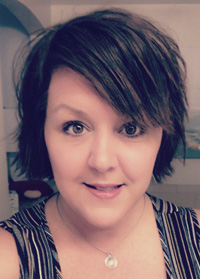Mother of five. Justice seeker. Believer in good.
 Two moms sat on a park bench sharing their stories.
Two moms sat on a park bench sharing their stories.
From the age of 6, Sarah had been in 18 different foster homes. The longest she had ever been with the same family was one year. She aged out of that system – a system that promised to provide safety but harnessed abuse. She created an adoption plan for her two small children before they were lost to the very system that failed her. Sarah knew her history of generational poverty and dysfunction was too great a burden to overcome on her own. She was overwhelmed and living in a domestic violence shelter. She was fighting depression from layers of shame of a childhood you don’t find on Nick at Nite. She wanted more for the babies she loved.
Then it was my turn.
I grew up in a supportive, loving home with both parents present and involved. I didn’t have much but my basic needs were always met. I had spent a lifetime taking for granted how that security shaped my life. In that moment, I was overcome with the knowledge of the privileges my life had provided. I was deeply shaken by the lack hers had afforded and the fact that neither I, nor she, had done anything to deserve either.
I was face to face with the truth and ugliness of the inequality. I had always felt safe. I had always felt loved. There was always food in my home. There had been programs in her life, one after another, that failed her. The more I learned how those systems work, the more they seemed almost designed to. We had both made some dumb choices, but my world seemed to protect me from mine. That same world seemed to unfairly point to hers as some kind of character flaw. I could be focused on thriving. She had been focused on surviving.
That moment on that park bench and my relationship with Sarah changed the trajectory of my life. When I started working in social work, I knew loving a sweet, young, innocent child would be the easy part. I had no idea I’d fall in love with their mommas too. As I listened to Sarah, I allowed her story to shape my own. In working with many other families with similar stories since, I realized a lot about myself. I had some preconceived notions about mommas like her. Turns out I was wrong.
As I sat in my minivan, I had a choice. I could continue with the narrative I had known and the bias I held, or I could hear her. I could take that pang of guilt I felt and vigorously defend myself from the discomfort of the situation or I could believe her truth. Her experience was nothing like my own but it was real just the same.
I was completely ignorant to the complexities of generational poverty in America. I spent the next several years getting a crash course. When we allow ourselves to be in community with others, when we are in proximity to those that are unlike us in some way, we see just how much in common we have. We see the reality of the world.
Sarah, like me, had the same hopes and dreams for her children. She had the same need to feel heard and be valued by another. She worked every bit as hard as I did. Yet her world and mine seemed to span the width of a continent.
There in that park, I asked myself how I could fight the inequities that made this her reality. I asked what I could do to diminish that feeling of other and replace it with a sense of belonging and worth. I decided then I’d attempt to use my voice to bring light to and amplify hers.
We have to be willing to redefine our narratives if we are to make changes. Examine our hearts. Set aside our preconceived notions. We must listen with the intent of understanding so we can learn and grow with one another. We must humble ourselves enough to believe people when they tell us their experience, even if it is not our own. The world desperately needs us to.

A. Excellent read. So true. The world calls us to be empathetic, my savior calls me to b empathetic but empathy is great but without actions it bares itself empty. God help me not to b an empty vessel.